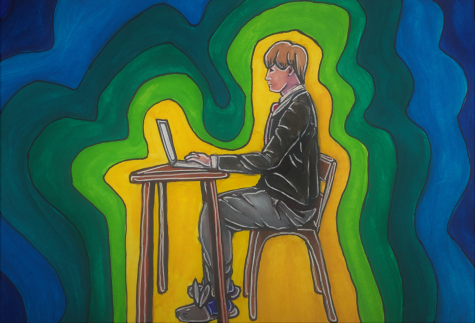Standards of professionalism are changing, and that’s a good thing
September 10, 2020

In the midst of a global pandemic, professional life has far exceeded its pre-pandemic boundaries, and it is becoming increasingly impossible to separate the two spheres of personal and professional. Working from home makes it difficult to separate what was once two binary sides of life, and that can take a toll on your mental health. It can be annoying when you hear rowdy kids in the background of someone’s work call on Zoom; it’s often awkward when your class is scheduled during the only time you have to eat dinner; and it could be embarrassing to ask to attend a meeting on Zoom rather than in person.
When these two spheres mix, do they need to clash with one another? To normalize young children interrupting work time makes work more accessible to mothers and single parents; eating dinner during class is more accessible to people in different time zones or those who may have other work obligations; attending meetings online rather than in person makes them more accessible to people who are immunocompromised and/or disabled. Our society is collectively beginning to move away from standards of professionalism, and we see how they have disproportionately policed marginalized groups. Standards may have permanently changed by the end of 2020.
Professionalism is often defined as the conduct, aims or qualities that characterize or mark a profession or a professional. Yet, the closer you look at the standards of professionalism, the more you can see how it was crafted to be exclusionary of anyone deemed less profitable. For example, “professional” attire required for work has been historically used by white, upper-class men to control and police the women and people of color who they hire. This paradigm of professionalism creates a baseline of discrimination against people with different socioeconomic backgrounds, against people of color, people working multiple jobs, people with disabilities and people with caretaking responsibilities. Marginalized groups are being and have been harmed by the standards of professionalism, and professional spaces are accepting fewer and fewer people from marginalized groups, which further disadvantages those groups in the workplace.
With that said, this period of remote learning and working may serve to rid professionalism of its ableist and elitist social implications and to create an inclusive working culture for people with different individual circumstances. This period in time allows us to normalize prioritizing individual health needs over professional efficiency in a way that can make a difference for those whose health has long suffered for the sake of professionalism.
Your ability to adhere to professional standards should never determine the value of your work. Missing a class doesn’t make you lazy, setting boundaries for your work life doesn’t make you indulgent and struggling to keep up doesn’t make you incompetent. Eating during class doesn’t make you any less valuable as a student, working from home with young children doesn’t make your work any less important and calling into a meeting doesn’t make you any less present.







